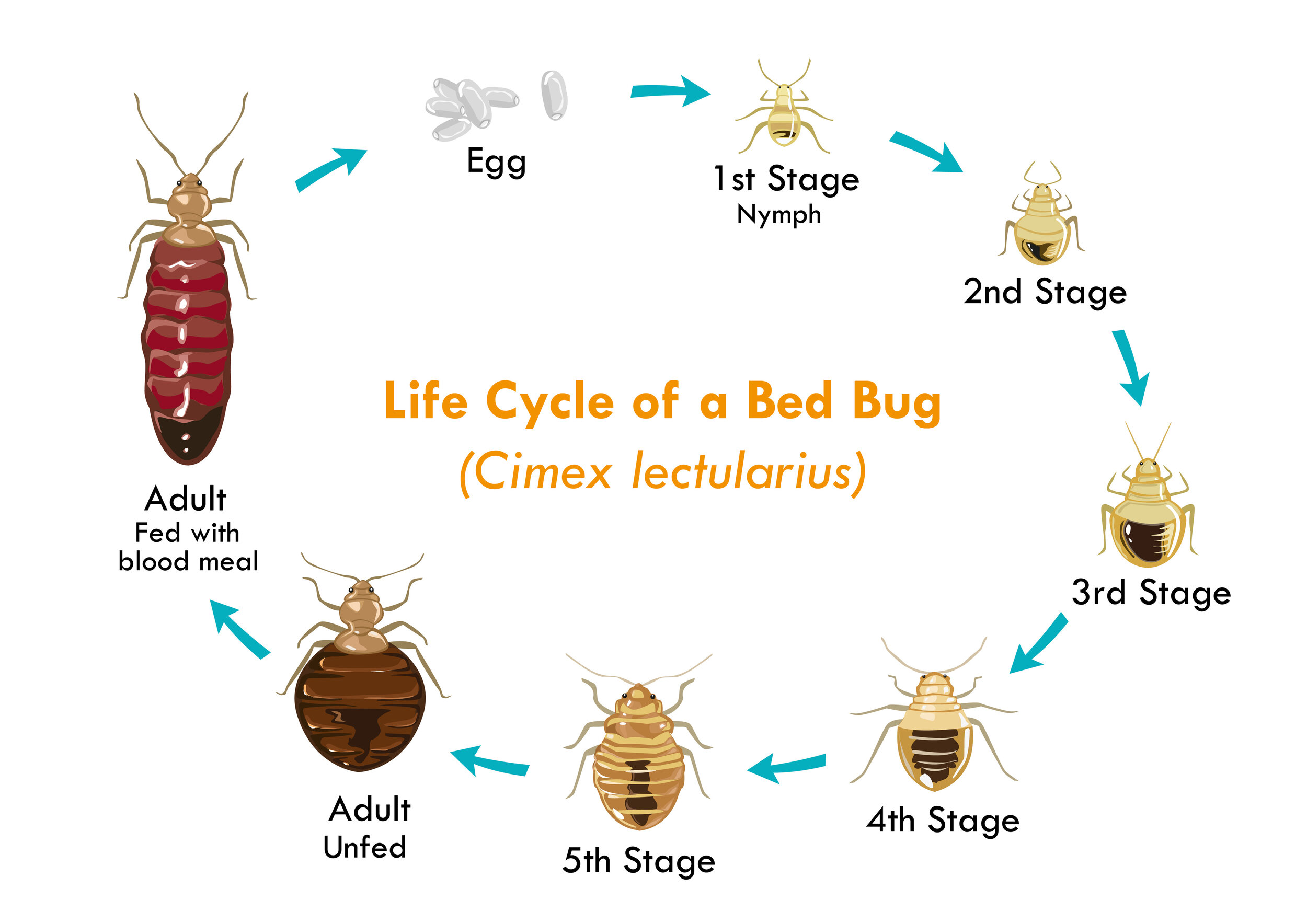A1 Bed Bug Removal Houston: Trusted Extermination Services
Comprehending the Lifecycle of Parasites for Targeted Control Approaches
Recognizing the lifecycle of pests is an essential aspect of reliable insect monitoring methods. With a deeper understanding of exactly how pests advance and flourish, customized control techniques can be designed to attend to specific factors in their lifecycle, ultimately leading to even more effective insect monitoring results.
Significance of Understanding Parasite Lifecycle
Understanding the lifecycle of bugs is vital for developing efficient and targeted control approaches in pest monitoring. By comprehending the different phases an insect goes through from egg to adult, bug control professionals can determine weak spots in the lifecycle where intervention can be most effective. Knowing when larvae are most energetic can aid determine the optimal timing for applying larvicides. Furthermore, recognizing the life-span of a pest varieties can aid in anticipating population development patterns and possible problem threats.
Moreover, recognizing the specific ecological conditions required for each and every phase of the insect's lifecycle can assist choices on habitat modification or exclusion techniques to decrease and interfere with the lifecycle parasite populaces. This understanding allows pest administration experts to implement proactive actions instead of depending entirely on responsive therapies, causing even more sustainable and lasting pest control remedies. Eventually, a detailed understanding of pest lifecycles empowers parasite control professionals to tailor their strategies properly, taking full advantage of and lessening environmental effects control outcomes.
Trick Stages in Insect Growth
To efficiently execute targeted control methods in parasite management, an important element lies in thoroughly determining and comprehending the essential stages in insect advancement. Bug growth commonly is composed of numerous crucial phases that are vital for their lifecycle and administration.

Susceptabilities in Insect Lifecycle
Throughout the numerous phases of a parasite's lifecycle, distinctive susceptabilities emerge that can be tactically targeted for effective control measures (A1 Bed Bug treatment houston). One vital vulnerability lies in the egg phase, where parasites are commonly a lot more vulnerable to certain pesticides or organic control agents due to their soft external covering, making them simpler targets for intervention. Comprehending these susceptabilities in the insect lifecycle is essential for creating exact and effective control techniques that effectively take care of insect populaces while decreasing environmental influence.
Carrying Out Targeted Control Steps

Carrying out targeted control steps usually involves a multi-faceted strategy. This may consist of habitat modification to make the setting less friendly to bugs, such as removing standing water for insect control or sealing access points for rats. Furthermore, organic control techniques can be made use of, where natural killers or pathogens are presented to keep bug populaces in check.
Chemical control, such as the cautious application of chemicals, is another typical approach. It is important to make use of these materials sensibly to lessen ecological impact and prospective damage to non-target varieties - A1 bed bug removal houston. Integrated Bug Management (IPM) methods that incorporate numerous i loved this control measures in a collaborated and lasting fashion are often the most effective in accomplishing long-lasting bug administration goals. By carrying out targeted control procedures based upon a comprehensive understanding of insect lifecycles, insect populations can be successfully managed while lessening threats to human wellness and the setting.
Enhanced Insect Monitoring Practices

Moreover, the incorporation of organic control agents, such as all-natural predators or virus of parasites, can aid reduce reliance on chemical pesticides and advertise a more well balanced ecosystem. Carrying out physical obstacles and traps can likewise become part of enhanced insect monitoring techniques, offering safe and targeted remedies for pest control. Furthermore, making use of scents and other semiochemicals can interrupt pest breeding patterns and interaction, have a peek here leading to decreased insect populations gradually.
Conclusion
By identifying crucial phases in insect development and vulnerabilities in their lifecycle, targeted control measures can be implemented to decrease parasite populaces. Improved insect management techniques can aid minimize the reliance on broad-spectrum chemicals and advertise more ecologically friendly and lasting bug control techniques.
Understanding the lifecycle of pests is important for developing reliable and targeted control approaches in insect management. By understanding the different stages a pest goes via from egg to adult, parasite control experts can identify at risk points in the lifecycle where treatment can be most successful. Ultimately, a thorough understanding of parasite lifecycles empowers parasite control professionals to tailor their methods effectively, decreasing ecological effects and maximizing control end results.
By executing targeted control actions based on a comprehensive understanding of parasite lifecycles, pest populations can be properly controlled while lessening threats to human health and the atmosphere.
By recognizing key stages in parasite development and vulnerabilities in their lifecycle, targeted control actions can be implemented to reduce bug populaces.